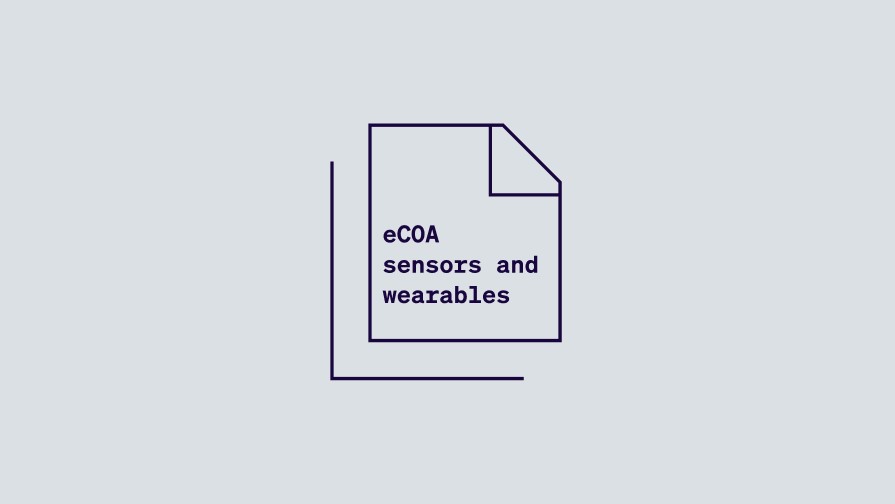eCOA+


Case study: Setting a new client standard in study closeout timelines
A top-10 global pharmaceutical company partnered with Medable for their pivotal Phase III diabetes study in the highly competitive market. Recognizing the inefficiencies in traditional study delivery and closeout processes, the company leveraged Medable’s expertise to accelerate timelines, enhance operational efficiency, and achieve a faster time to market for this high-profile therapy.


How to improve eCOA data quality in clinical trials
Electronic clinical outcome assessments (eCOA) have become essential for modern clinical trials, offering numerous advantages over traditional paper-based methods. However, the benefits of eCOA can only be fully realized if the data collected is of the highest quality. Ensuring data quality in eCOA clinical trials requires a multifaceted approach, encompassing platform design, patient engagement strategies, robust data validation procedures, and strict adherence to regulatory guidelines. This blog post explores key strategies for achieving and maintaining data quality throughout the eCOA process.


The role of eCOAs and wearables in modern oncology clinical trials
In the rapidly evolving landscape of oncology clinical trials, the integration of electronic Clinical Outcome Assessments (eCOA) and wearable technologies is revolutionizing how data is collected and patient experiences are monitored. These technologies offer unprecedented opportunities to enhance data quality, improve patient engagement, and enable real-time tracking of treatment efficacy and side effects. This blog post delves into the pivotal roles that eCOA and wearables play in modern oncology clinical trials, highlighting their impact on patient-centric research and the advancement of cancer care.


Top technical considerations with eCOA in clinical trials
Explore the prevalent challenges encountered in eCOA clinical trials, from technical issues and patient adherence to data security and regulatory adherence, and discover strategies for mitigation.


Optimize patient adherence by implementing eCOA in clinical trials
Patient adherence is a must for any clinical trial to be considered successful. When patients consistently and accurately complete their electronic clinical outcome assessment (eCOAs) the quality and reliability of the data significantly improve, leading to more robust trial outcomes.
However, maintaining high patient adherence can be challenging, particularly in long-term studies or complex assessments. This blog post explores effective strategies to optimize patient adherence in eCOA clinical trials, focusing on patient-centric design, clear communication, and strategic technology implementation.


Building a “gold standard” clinical trial experience in Japan
When talking to customers conducting their first multi-country trial, we sometimes liken clinical trials to spider webs. Just as a garden spider’s web differs from a black widow’s, clinical trials follow unique patterns in every region. Each country comes with its own set of rules, ethical standards, approval processes, and data privacy laws. Cultural factors also play a crucial role in how patients are recruited and understand Clinical trials, requiring sensitive communication and a deep respect for participants’ needs.
In Japan, these regulatory and cultural intricacies form a complex ‘web,’ with anchor points and structural requirements that, when understood and implemented correctly, create a framework for success. However, conducting Clinical trials in Japan has historically posed challenges for Sponsors and Contract Research Organizations (CROs). When we first entered the region, one Sponsor consistently cited issues with eCOA solutions and site and patient support, not fully adapting to Japan’s unique requirements. This feedback, combined with our own experiences on the ground, revealed a clear need for improvement.
Today, we can proudly say that the solutions we put in place have transformed Japan’s Clinical trial landscape, and what was once a challenge has now become the “gold standard” for supporting Clinical trials in the region.


The critical role of eCOA software in shaping modern clinical trial design
Discover how eCOA software is reshaping modern clinical trials by enabling decentralized designs, enhancing patient adherence, and optimizing data collection through real-time digital tools. Learn how cloud-based solutions and AI are driving the next evolution in clinical research.


What is eCOA? An overview of eCOA in Clinical Trials
What is eCOA?
As FDA Principal Deputy Commissioner Janet Woodcock said in a 2015 Clinical Outcome Assessment Public Workshop, “It turns out that what is really bothering the patient and what is really bothering the doctor can be radically different things...patients are true experts in their disease.”
Clinical outcome assessments (COAs) have been key to capturing a comprehensive picture of patient experiences and treatment outcomes in today’s research landscape for decades. Integrating COAs into trial protocols bolsters our treatments' scientific integrity and enhances our ability to understand the real impact of interventions on patients.
COAs (called eCOAs when captured electronically) are essential to understanding whether a drug reduces symptoms, improves patients’ quality of life, and improves their ability to perform activities they care about.
Since the mid-2010s, electronic clinical solutions, like eCOA, have rapidly replaced their paper counterparts. Electronic Clinical Outcome Assessments comprise systematized digital methods for capturing patient-centered outcomes in clinical trials. These systems utilize validated electronic interfaces to collect, store, and analyze patient-reported data, clinician observations, and performance metrics.


Why cloud-based eCOA software is becoming the industry standard
The landscape of clinical trials is evolving rapidly, and at the forefront of this transformation is eCOA (electronic Clinical Outcome Assessment) software. This technology is streamlining data collection, enhancing patient compliance, and ensuring regulatory adherence like never before.


